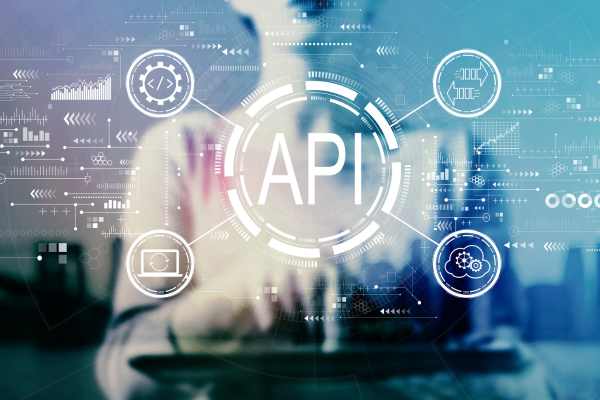In the fast-paced world of business communication, WhatsApp has emerged as a vital tool that enables organizations to engage effectively with their customers. The traditional methods of reaching out are rapidly being replaced by instant messaging solutions that offer both speed and efficiency.
Among the innovations making waves in this realm is the Unofficial WhatsApp API, providing an intriguing opportunity for small and medium enterprises (SMEs) to revolutionize their communication strategies.
By delving into this powerful resource, businesses can enhance customer engagement, streamline operations, and improve overall satisfaction without being shackled by the limitations of the official WhatsApp Business API.
But what exactly does the Unofficial WhatsApp API entail? Unlike its official counterpart, this API allows businesses to integrate WhatsApp messaging capabilities into their systems without extensive red tape and high costs.
This opens the door for SMEs to automate interactions, manage customer inquiries in real-time, and implement targeted marketing campaigns, all of which contribute to improved customer experiences. As we explore this topic further, you will discover how the Unofficial WhatsApp API can serve as a game-changer for your business, unlocking countless benefits while navigating the associated challenges.
However, it’s crucial to recognize the potential pitfalls that come with using unofficial tools. While they promise enhancements in functionality, such as automation and integration with existing systems, they also pose risks regarding compliance, data protection, and service reliability.
As you read on, you will learn the ins and outs of the Unofficial WhatsApp API, including its benefits, best practices for usage, and the importance of maintaining ethical standards when employing this innovative communication solution. Join us in uncovering the key strategies to harness the power of WhatsApp, ensuring your business stays ahead in an increasingly competitive digital landscape.
The Advantages of Using the Unofficial WhatsApp API

The Unofficial WhatsApp API provides businesses with an alternative way to leverage the WhatsApp platform for enhanced communication and customer engagement.
Targeted primarily at small and medium enterprises seeking cost-effective solutions, this API allows for the integration of WhatsApp messaging capabilities without relying solely on the official WhatsApp Business API.
By exploring the Unofficial WhatsApp API, users can access a flexible and powerful tool for automating interactions and streamlining communications within their marketing and sales strategies.
Using the Unofficial WhatsApp API can unlock numerous benefits for businesses. With its capability to send and receive messages, your team can handle customer inquiries in real-time, contributing to improved response times and customer satisfaction.
This tool also allows for the automation of routine interactions; companies can set up automated responses for frequently asked questions or schedule messages for targeted marketing campaigns, ensuring consistent and timely communication with prospects and customers alike. By implementing these features, companies can enhance their outreach efforts without overwhelming their resources.
However, it is crucial to use the Unofficial WhatsApp API responsibly to avoid potential risks. WhatsApp has strict policies against unauthorized use of their service, and failure to comply could result in account bans or restrictions.
Therefore, it is recommended to follow best practices when utilizing this API, such as adhering to user data protection regulations and ensuring that communications remain within WhatsApp’s guidelines. Businesses must also be aware of potential security vulnerabilities associated with unofficial tools and take measures to protect their data and customer information effectively.
In conclusion, while the Unofficial WhatsApp API presents a unique opportunity for SMEs to enhance their communication strategies, it is imperative to approach its implementation with caution and awareness of the associated risks.
By taking advantage of its features while ensuring compliance with WhatsApp’s policies, businesses can leverage this powerful communication platform to achieve better engagement, drive sales, and foster strong relationships with customers.
Understanding Risks and Legal Considerations

Understanding the use of unofficial WhatsApp APIs brings along a myriad of risks and legal considerations that businesses need to address before adopting such tools.
While unofficial APIs may promise enhanced functionalities like automation, integration with CRM systems, or bulk messaging capabilities, they often operate in a gray area that could lead to significant repercussions. WhatsApp has strict policies regarding the usage of its platform, and violating these can result in account suspension or even legal action against the business.
One primary risk of utilizing unofficial WhatsApp APIs is the potential for data breaches. These APIs are not sanctioned by WhatsApp, which means they may not comply with data protection regulations such as GDPR.
By using these tools, businesses could inadvertently expose sensitive customer information, leading to trust issues and potential legal liabilities. As data privacy becomes increasingly critical in today’s digital landscape, adhering to compliance standards is not just a best practice but an essential aspect of preserving brand integrity and customer loyalty.
Additionally, the reliability of unofficial APIs is often suspect. As these services are not supported by WhatsApp, users may experience downtime, lack of customer support, and other technical difficulties that disrupt communication with customers.
Businesses rely heavily on communication platforms to engage with clients and prospects effectively; any disruption can result in lost sales opportunities and damage customer relationships. Before employing an unofficial API, it’s crucial to evaluate the continuous reliability and support mechanisms offered by the provider.
Another consideration is the ethical implications of using unofficial software. Trust is fundamental in any customer-business relationship. Employing methods that could be perceived as deceptive or non-compliant can harm brand reputation.
It’s essential to weigh the benefits against the risks and consider official alternatives offered by WhatsApp, such as the WhatsApp Business API, which is designed specifically for businesses and adheres to compliance and privacy regulations.
By prioritizing safety and legality, businesses can effectively leverage WhatsApp as a communication platform without jeopardizing their operations.
Setting Up the Unofficial WhatsApp API

Setting up the Unofficial WhatsApp API can significantly enhance communication strategies for small and medium businesses, providing a robust platform for customer engagement. To get started, the first step is to ensure you have a comprehensive understanding of the technical requirements and potential applications of the API.
You’ll need a server environment where you can host the API, and a good knowledge of programming languages such as Python or Node.js, which are commonly used to create the necessary integrations.
Once your environment is ready, the next step is to obtain the Unofficial WhatsApp API software. Numerous repositories, like those found on GitHub, host various versions of the API. It’s crucial to choose a trusted source and review the documentation thoroughly.
Installation typically involves downloading the API files, configuring settings to suit your business needs, and ensuring that your server meets the requirements for running the API smoothly.
After installation, you should also consider implementing security measures. Since you’re working outside the official framework, creating a secure environment that includes firewalls and monitoring tools to track potential vulnerabilities is essential.
As you dive into the API’s features, take advantage of the customization options available. You can tailor messaging flows, automate responses, and manage multiple accounts seamlessly. Integrating the API with your current customer relationship management (CRM) software can also streamline your operations.
This allows for automated updates and ensures that all customer interactions are recorded for future reference. Employing tools like webhooks can help you stay updated with incoming messages and user interactions in real time, making your communication more proactive.
Finally, as your business begins to leverage the Unofficial WhatsApp API, consider collecting feedback and analyzing performance metrics.
Tools like Google Analytics can help track engagement levels and refine your strategy based on data-driven insights. Regularly updating your messaging approach based on customer preferences can lead to improved satisfaction and higher conversion rates.
By following these tips and tricks for setup and optimization, your business can effectively utilize the Unofficial WhatsApp API as a powerful communication platform to foster better relationships with customers.
Best Practices for Using the Unofficial WhatsApp API

The Unofficial WhatsApp API can significantly enhance the capabilities of small and medium businesses looking to optimize their communication strategies. To use this powerful tool effectively and safely, it’s essential to follow some key tips and tricks that not only streamline messaging processes but also maintain compliance with WhatsApp’s guidelines.
First, always prioritize user consent when utilizing the Unofficial WhatsApp API for outreach campaigns. Before initiating any communication, ensure that users have explicitly opted in to receive messages from your business. This practice not only fosters trust but also helps avoid potential penalties or restrictions on your account.
Maintaining a transparent opt-in mechanism can significantly improve the receptiveness of your audience while complying with regulations surrounding data usage.
Next, take advantage of the API’s automation features judiciously. Automation can save time and reduce human error, yet it’s crucial to strike a balance between automated responses and personal interactions.
Use automated replies for frequently asked questions or initial contact, but always offer users the opportunity to connect with a real person when they need assistance. This approach enhances customer satisfaction and helps maintain a personal touch that is often lost in automated communications.
Monitoring message delivery and engagement metrics is another critical tip for effectively using the Unofficial WhatsApp API. Many messaging platforms provide analytics tools that allow businesses to track the performance of their communications.
By analyzing open rates, response times, and engagement levels, marketers can gain insights into customer preferences and refine their strategies accordingly. Regularly assessing this data helps in identifying new opportunities for engagement and improving overall messaging efficiency.
Lastly, ensure that you stay updated with the latest API features and best practices. The world of technology is constantly evolving, and so are the tools available for communication. Joining relevant forums, attending webinars, and subscribing to industry news can provide valuable insights into how other businesses leverage the Unofficial WhatsApp API effectively.
With this knowledge, you can adopt innovative strategies that enhance your messaging platform while remaining compliant with WhatsApp’s guidelines, ultimately driving better results for your marketing and sales efforts.
Building Customer Engagement Through Unofficial WhatsApp API

Businesses are increasingly turning to the unofficial WhatsApp API to enhance their communication strategies and streamline customer engagement. This API provides organizations with the flexibility to create customized experiences that go beyond the capabilities of the official WhatsApp Business API.
Businesses can leverage the unofficial API to integrate WhatsApp with existing customer relationship management (CRM) systems, ensuring that interactions are tracked and managed more effectively. This integration can lead to improved customer insights, allowing for more personalized marketing strategies.
One of the primary use cases for the unofficial WhatsApp API is automating customer support. Small and medium businesses can utilize automated messaging systems to respond to frequently asked questions, process orders, and provide shipping updates.
By implementing chatbots through the unofficial API, businesses can ensure 24/7 availability, enhancing the customer experience by providing immediate responses and reducing wait times. This not only boosts customer satisfaction but also frees up valuable human resources to focus on more complex inquiries.
Additionally, the unofficial WhatsApp API opens up opportunities for targeted marketing campaigns. By collecting data from customer interactions, businesses can segment their audience and tailor promotional messages based on user behavior and preferences.
Sending personalized offers via WhatsApp has shown to increase engagement rates significantly. For marketing and sales professionals, leveraging this platform means reaching out to customers on a communication platform they already use, leading to higher conversion rates and better ROI on campaigns.
Safety and privacy are chief concerns when utilizing the unofficial WhatsApp API. Businesses must ensure that they comply with relevant data protection regulations and best practices for securing customer data.
This includes implementing robust data encryption and ensuring that any information collected through the API is stored and handled responsibly. By following these guidelines, businesses can not only take advantage of the innovative capabilities of the unofficial WhatsApp API but also build trust with their customers, ensuring a safe and secure communication experience.
Maintaining Compliance and Security

To ensure the safe and effective use of unofficial WhatsApp APIs, it is crucial for small and medium businesses, as well as marketing and sales professionals, to adopt best practices that protect their accounts and maintain compliance with WhatsApp’s policies.
First and foremost, businesses should thoroughly research and choose reputable unofficial API providers. The market offers various options, but not all are secure or reliable. Look for vendors that provide transparent documentation, customer support, and positive reviews from other users.
This responsible vetting process helps mitigate risks associated with unauthorized access and potential account bans.
Another important practice is to avoid sharing sensitive data through unofficial APIs. Implement strict policies regarding what types of information can be distributed through the platform. This includes personal data, financial information, and login credentials.
By limiting the kind of data sent via these channels, businesses can reduce the risk of data breaches and maintain customer trust. Furthermore, utilizing end-to-end encryption where available will help protect any shared communications, bolstering overall data security.
Monitoring API usage is also a vital aspect of safe operations. Employ analytics and logs to track how the API is utilized within the organization. This can help identify any unusual patterns or potential misuse.
By being proactive in monitoring API interactions, businesses can quickly address issues before they escalate, ensuring that communications maintain their integrity and reliability. Additionally, establishing rate limits and automated warnings can help prevent abuse, fostering a controlled environment that adheres to user guidelines.
Lastly, keeping abreast of WhatsApp’s ongoing policy changes is essential. The messaging platform frequently updates its usage terms and conditions, especially regarding unofficial APIs. By staying informed, businesses can ensure they adapt their strategies accordingly and avoid costly penalties or disruptions in communication.
Regularly reviewing software updates from the API provider and participating in relevant community forums can provide valuable insights into best practices and industry trends, enhancing the overall effectiveness of the communication strategy.
The Future of Business Communication with WhatsApp

WhatsApp has revolutionized the way businesses communicate with their customers, making it a pivotal tool for small and medium enterprises. As a messaging app that connects billions of users worldwide, WhatsApp serves as more than just a platform for casual exchanges; it has evolved into a vital communication platform for businesses aiming to enhance their customer engagement and streamline operations.
The future of communication is increasingly centered around such platforms, where speed, accessibility, and ease-of-use are paramount in meeting user needs.
The role of WhatsApp as a communication facilitator cannot be overstated. Businesses can leverage its messaging capabilities to maintain direct contact with their customers, providing instant support and personalized service.
By utilizing features like voice messages, video calls, and group chats, companies can foster a more interactive environment, encouraging real-time conversations that enhance customer relationships. This direct line of communication helps businesses gather feedback quickly, address concerns immediately, and build trust among customers, all of which are integral to long-term success.
Moreover, the functionality of WhatsApp allows businesses to implement innovative strategies through tips and tricks, improving both marketing and sales effectiveness. Automated messaging, for example, can ensure customers receive timely responses and crucial information without the overhead of constant manual input.
Additionally, businesses can segment their audience and tailor messages to specific customer groups, increasing relevance and engagement.
By sharing product updates, promotions, or even valuable content, businesses transition from mere transactional relationships to meaningful connections, which ultimately drive customer satisfaction and loyalty.
As we look towards the future, communication platforms like WhatsApp are likely to further integrate advanced technologies such as AI and machine learning. This evolution will enhance user experience, making it even easier for businesses to automate processes, analyze customer interactions, and optimize communication strategies.
Embracing these changes will not only position businesses as forward-thinking but also empower them to meet the demands of a rapidly changing market landscape, ensuring they stay competitive in an increasingly digital-first world.
Using an unofficial WhatsApp API can offer businesses innovative ways to enhance their communication strategies, but it comes with potential risks that must be carefully managed. To leverage the benefits while minimizing the risks, businesses should adhere to best practices when integrating these APIs into their operations.
It’s essential to prioritize user consent and ensure transparency in communication to maintain trust with customers. Abruptly adopting features without considering privacy implications may lead to adverse effects on brand reputation and customer relationships.
Additionally, businesses should stay informed about the legal landscape surrounding the use of unofficial APIs. Understanding the terms of service of WhatsApp and ensuring compliance can save companies from penalties or account suspensions.
By having a comprehensive approach to risk management, businesses can navigate potential pitfalls associated with using these tools. Assessing the reliability of the unofficial API provider and the security measures in place is also crucial. Before implementation, companies should invest the time to research the chosen API’s credibility and operational integrity.
Incorporating unofficial WhatsApp APIs can significantly streamline communications with customers, improve response times, and enhance customer engagement through automation and personalized messaging.
To harness these advantages effectively, companies should employ creative strategies and carefully tailor their outreach campaigns, leveraging tips and tricks that keep their brand voice consistent across all platforms. Effective use of data analytics can also optimize messaging strategy, ensuring that marketing efforts resonate with target audiences.
In conclusion, while unofficial WhatsApp APIs can potentially revolutionize business communication strategies for small and medium enterprises, it is vital to approach their use with caution.
By implementing strong governance practices and focusing on compliance and user trust, businesses can utilize this powerful tool safely and responsibly, reaping the benefits of enhanced customer interactions while safeguarding their brand integrity. For those looking to explore more, check out the CRM for WhatsApp that can help manage your communications efficiently.









